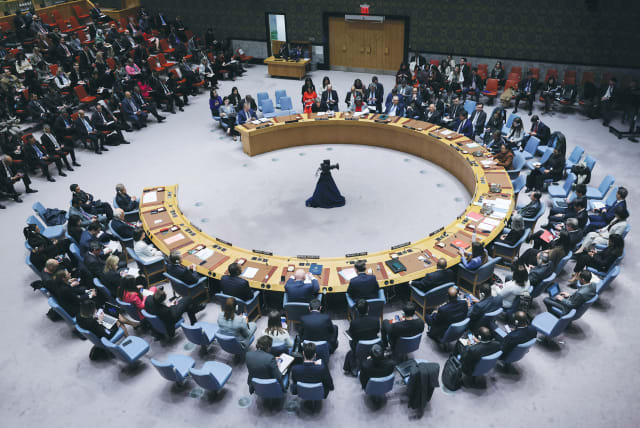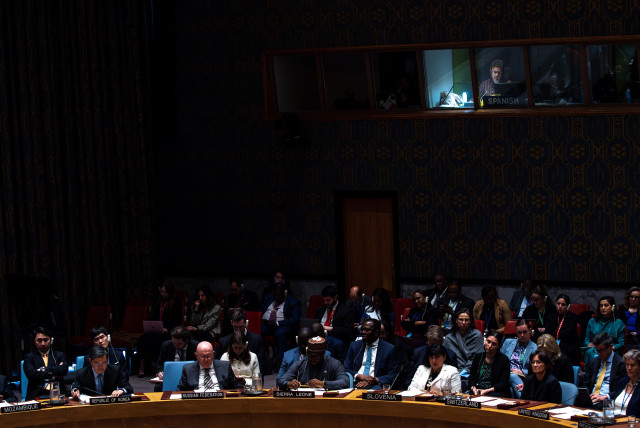UNSC must insist that Hezbollah leave southern Lebanon, Katz says

Katz told the UNSC that Israel had engaged “constructively” to secure a diplomatic resolution to the conflict but that Hezbollah had rejected those efforts.
The United Nations Security Council must act to ensure that the Iranian proxy group Hezbollah pulls out of southern Lebanon, Foreign Minister Israel Katz said on Monday.
“Even before October 8, Israel repeatedly warned the Security Council and UNIFIL about Hezbollah’s increasing military entrenchment on both sides of the Litani River,” Katz said in a letter he wrote Monday to the Security Council.
“Now, this council must bring about a full implementation of UNSC Resolution 1701 and guarantee that there are no armed personnel, assets, and weapons between the Blue Line and the Litani River, other than those of the Government of Lebanon and UNIFIL (United Nations Interim Force in Lebanon),” Katz wrote.
Israel has long urged the international community and the UNSC in particular to ensure that Hezbollah adheres to Resolution 1701, which set out the ceasefire terms that ended the Second Lebanon War in 2006. That resolution mandates that no armed state actor, such as Hezbollah, is allowed to operate between the Israeli-Lebanese border and the Litani River.
Ignoring the mandate
Hezbollah has persistently ignored that mandate. In the aftermath of the Hamas-led invasion of southern Israel on October 7, Prime Minister Benjamin Netanyahu’s government has held that Israeli citizens can not safely live in their border communities until such time as Hezbollah withdrawals to the Litani River.
The constrained IDF-Hezbollah cross-border war of the last year has only heightened the danger, with Hezbollah linking a diplomatic resolution to that constrained war with a Gaza ceasefire.
Katz told the UNSC that Israel had engaged “constructively” to secure a diplomatic resolution to the conflict but that Hezbollah had rejected those efforts.
“Hezbollah has refused to support a diplomatic arrangement, instead linking the issue to a ceasefire in Gaza,” Katz wrote.
“Hezbollah deliberately deploys its arms within civilian infrastructure in Lebanon, using the civilian population as human shields. Israel has been monitoring this attempt and will act in order to protect its population from Hezbollah attacks,” he said.
“I call upon the Security Council to condemn in the strongest terms the recent attack launched by Hezbollah under the guidelines of its Iranian patron and their relentless attempts to destabilize the region,” Katz stated.
Jerusalem Post Store
`; document.getElementById("linkPremium").innerHTML = cont; var divWithLink = document.getElementById("premium-link"); if (divWithLink !== null && divWithLink !== 'undefined') { divWithLink.style.border = "solid 1px #cb0f3e"; divWithLink.style.textAlign = "center"; divWithLink.style.marginBottom = "15px"; divWithLink.style.marginTop = "15px"; divWithLink.style.width = "100%"; divWithLink.style.backgroundColor = "#122952"; divWithLink.style.color = "#ffffff"; divWithLink.style.lineHeight = "1.5"; } } (function (v, i) { });

